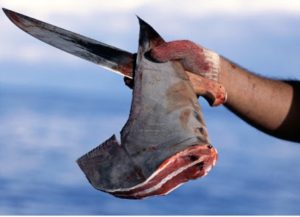Environment
Short Takes
Georgia’s new data center rule increases local controlDecember 1, 2025

By David Pendered
Dec. 16 – Sharks are soon to be granted major protection by the annual defense bill awaiting President Biden’s signature.
The legislation makes shark fins illegal to buy, sell, transport or possess in the United States. The federal civil penalty for each violation is up to $100,000. The boat used to cut fins off shark can be seized by the government. Each day of a shark-fishing trip can be penalized as a separate incident.
The president is expected to sign the bill despite his reluctance concerning another aspect of the bill, which rescinds the military’s COVID vaccine mandate, according to a report by Reuters.com.

“It’s a great day for sharks,” Beth Lowell, U.S. vice president of Oceana, said in a statement. Oceana is a global non-profit ocean conservation organization that’s been fighting the shark fin trade for years – including in Georgia – in order to protect sharks. Lowell’s comment continued:
The shark fin ban awaiting the president’s signature is clear and is located at the top of page 2587 of the Senate amendment to the James M. Inhofe National Defense Authorization Act for Fiscal Year 2023. The provision states:
The legislation directs enforcement of the penalty provisions to the Magnuson-Stevens Fishery Conservation and Management Act. The penalties stated in this act are clear:
Repeat offenders face penalties of increasing severity:

The process of harvesting shark fins is to catch a shark, haul it aboard a boat, slice off the fins and dump the creature back into the water. The shark’s fin is the coveted piece of the animal because of prices it commands as a delicacy for some Asian dishes.
In Georgia, Oceana may be best known for its efforts to protect the North American right whales, which calve in the winter off the coasts of Georgia and northern Florida. Sharks are on the group’s watch list, as well, and the Port of Savannah in particular because the port has been a significant debarkation point for shark fins, according to a 2017 report by SavannahNow.com.
Oceana researched the export issue Friday and located data on a NOAA page that shows exports from Savannah have declined sharply since 2015:
Sharks have been hunted to the brink of population collapse, according to published research.
A peer-reviewed article published in 2021 in the science journal Nature reported the abundance of oceanic sharks and rays has declined by 71 percent since 1970. The story reports the decline is due to fishing pressure that must be eased if the species are to rebound:

0